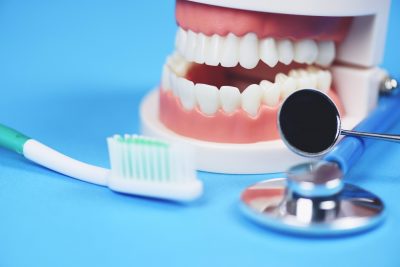 Supplements, vitamins, minerals, over-the-counter drugs and prescription drugs are common drugs we often take. However, one thing we may not know is that some of these drugs and supplements may have a link to some of the dental health problems we’re experiencing today. Bone loss, taste changes, irritated gums, and dry mouth are some dental health problems that can occur due to drug usage over time.
Supplements, vitamins, minerals, over-the-counter drugs and prescription drugs are common drugs we often take. However, one thing we may not know is that some of these drugs and supplements may have a link to some of the dental health problems we’re experiencing today. Bone loss, taste changes, irritated gums, and dry mouth are some dental health problems that can occur due to drug usage over time.
That’s why it’s good to read the fine prints on your medication packaging to see the side effects. Also, if you have concern that certain medications have side effects affecting your teeth, it’s essential to consult your dentist or doctor.
Here are some dental problems to keep an eye on if you’re on medication
Parched Mouth
Xerostomia or dry mouth is among the first symptoms that indicate your medication is affecting your dental health. Saliva is known to keep your teeth clean and prevent plaque formation. Therefore, when saliva decreases in your mouth, you’re likely to experience oral discomfort, gum inflammation, and even gum diseases and cavities.
Sedatives, antihistamines, decongestants, antidepressants, and pain medications are some of the drugs that can cause dry mouth. In fact, over 400 drugs can induce dry mouth. Therefore, if you start experiencing severe dry mouth after taking prescription medication, you need to talk with your doctor to have it replaced.
Abnormal bleeding
Aspirin-like warfarin and anticoagulants are majorly prescribed to people at risk of getting stroke or heart disease as they help thin the blood. Patients using these medications tend to be at a higher risk of experiencing bleeding issues from oral surgery or treatment for periodontal disease. Therefore, before you undergo any surgery, disclose to your doctor or dentist that you’re taking anticoagulants so they can take preventive measures to avert excessive bleeding. In addition, you should consider using soft brushes to reduce bleeding.
Change in Taste
If you start experiencing a metallic or bitter taste in your mouth after taking certain drugs, you need to talk to your doctor about changing your prescription. Some of the drugs that can cause a change in taste to include cardiovascular drugs, central nervous system enhancers, respiratory inhalants, antibiotics such as metronidazole, and smoking cessation aids.
Yeast Infection
Antibiotics, steroids, and chemotherapy drugs are more likely to cause a fungal infection in your mouth. Fungal infections in the mouth cause white spots on the tongue, but this can be treated using antifungal medication prescribed by your doctor or dentists or specific mouthwash.
Also, asthma inhaler drugs can cause yeast infections. Therefore, after using an inhaler, rinse your mouth with water to avoid infection.
If the fungal infection persists, reach out to a reputable dentist for a more potent antifungal drug prescription.
Mouth or Gum Lining issues
Oral contraceptives, seizure drugs, blood pressure drugs, immunosuppressant drugs, and chemotherapy drugs can also cause a problem with your gums, including sores, ulcers, discoloration, and inflammation of the lining of your mouth. If you’re on these medications, speak to your dentist and get a customized oral care plan to lessen the discomfort.
Bone Loss
Steroids and antiepileptic medicines can cause tooth loss. Also, bisphosphonates for treating osteoporosis can cause damage to the jawbone, which is associated with jaw numbness, loose teeth, fluid in the jaw and gums, swollen gums, or a heavy feeling in the jaw. That’s why it’s important to tell your dentist if you take osteoporosis medication. Your dentist may prescribe antibiotics or NSAIDs to slow down bone loss.
Tooth Decay
Did you know that numerous drugs contain sugar, especially the sweet ones given to kids? Excessive sugar causes dental caries. Therefore, if you’re taking chewable tablets such as vitamins, antacid tablets, and cough drops, chew sugarless gum or brush your teeth with fluoride toothpaste. Also, go for regular dental checkups.
Gum enlargement
Although an overgrowth of gum tissues around the teeth is usually caused by poor dental hygiene, in other instances, it can be a side effect of drugs such as anti-seizure medications (calcium channel blockers, immunosuppressant medicines, and phenytoin). Exercise extra care when brushing and flossing if you’re using these medications.
In conclusion, you should inform your dentist about your current symptoms and the medications you are on so that they can advise whether or not a change is needed to avoid dental problems.
For any dentistry questions or dental treatment, we are here to help you. Give us a call!
HPS Dental Care is Accepting New Dental Patients
At HPS Dental Care we focus not only on our dental patients’ teeth but also on their overall health. Call us at 248-652-0024 to schedule your dental appointment. HPS Dental is conveniently located on 24 Mile Road near Shelby Rd. in Shelby Township, MI.





